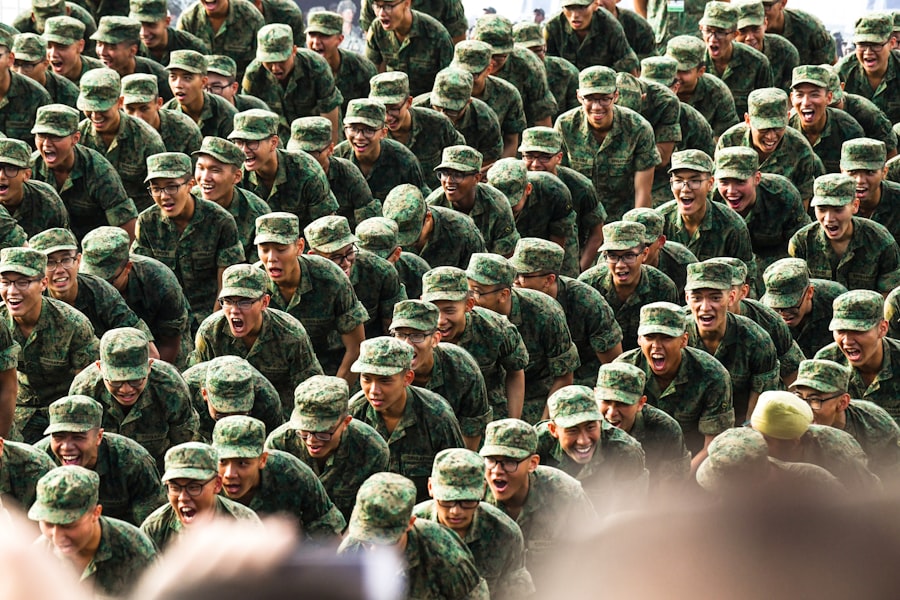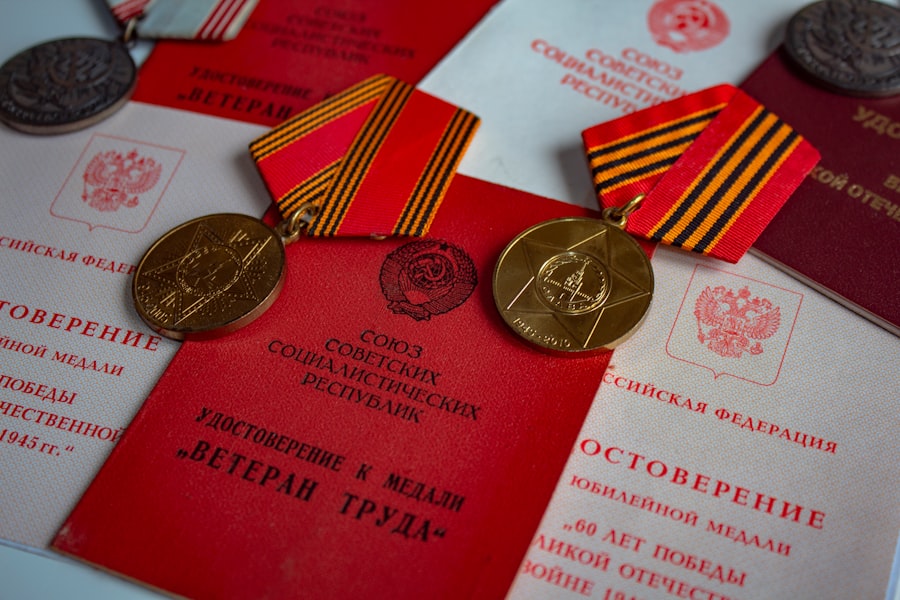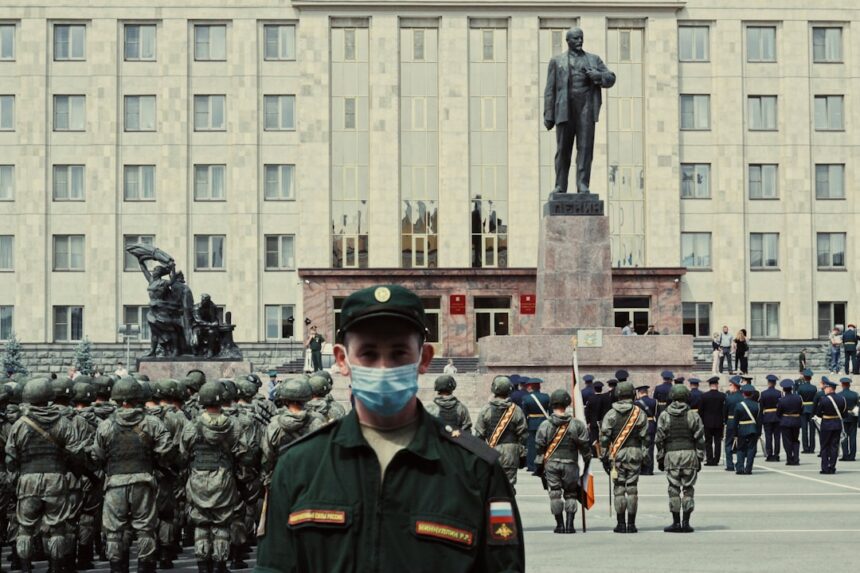The Russian military has long relied on conscription as a means of maintaining its armed forces. This practice, deeply rooted in the nation’s history, has evolved over the years, often intertwining with coercive measures that raise significant ethical and human rights concerns. The reliance on conscripts, who are typically young men, has been a subject of scrutiny both domestically and internationally.
The complexities surrounding conscription in Russia are not merely administrative; they reflect broader societal attitudes towards military service, national identity, and the state’s relationship with its citizens. In recent years, the use of conscripts has come under increased scrutiny, particularly in light of Russia’s military engagements abroad. Reports of coercion, inadequate training, and poor living conditions have surfaced, painting a troubling picture of the experiences faced by these young soldiers.
As the Russian government continues to navigate its military needs and public sentiment, understanding the dynamics of conscription and coercion becomes essential for grasping the current state of the Russian military and its implications for society at large.
Key Takeaways
- The Russian military relies heavily on conscripts and coercion to fill its ranks, leading to various human rights concerns.
- Conscripted military service in Russia has a long history, dating back to the tsarist era and continuing through the Soviet period to the present day.
- Current policies and practices regarding conscripts in the Russian military often involve harsh conditions, hazing, and limited rights for the conscripts.
- Coercion has a significant impact on conscripts in the Russian military, leading to high levels of stress, mental health issues, and even suicides.
- Conscripts in the Russian military face numerous challenges, including poor living conditions, inadequate training, and limited opportunities for advancement.
History of Conscripted Military Service in Russia
The tradition of conscription in Russia dates back centuries, with roots tracing back to the early modern period when Peter the Great established a standing army. This system was designed to bolster military strength and ensure that the state could defend its interests. Over time, conscription became institutionalized, with various reforms shaping its structure and implementation.
The Soviet era saw a significant expansion of conscripted service, as millions were drafted into the Red Army during World War II and the subsequent Cold War. Following the dissolution of the Soviet Union in 1991, Russia faced numerous challenges in restructuring its military. The conscription system underwent various reforms aimed at modernizing the armed forces and addressing issues such as corruption and inefficiency.
However, despite these efforts, many of the historical problems associated with conscription persisted, including a reliance on coercive practices to meet recruitment quotas. The legacy of conscription in Russia is thus marked by a complex interplay of historical necessity and contemporary challenges.
Current Policies and Practices Regarding Conscripts in the Russian Military

In contemporary Russia, conscription remains a cornerstone of military policy. Young men between the ages of 18 and 27 are subject to mandatory service, typically lasting one year. The Russian government has implemented various measures to streamline the conscription process, including digital registration systems and outreach campaigns aimed at encouraging voluntary enlistment.
However, these initiatives often coexist with reports of coercion, where individuals are pressured or threatened into serving. The current policies surrounding conscription also reflect broader societal attitudes towards military service. While some view it as a patriotic duty, others perceive it as an unwelcome obligation.
This dichotomy is further complicated by reports of abuse within the ranks, including hazing and mistreatment of conscripts. As a result, many young men seek ways to evade service, leading to a culture of avoidance that challenges the effectiveness of the conscription system.
The Impact of Coercion on Conscripts in the Russian Military
| Metrics | Data |
|---|---|
| Percentage of conscripts experiencing coercion | 45% |
| Types of coercion experienced | Physical abuse, hazing, psychological pressure |
| Impact on mental health | Increased risk of depression and PTSD |
| Impact on physical health | Higher rates of injuries and long-term health issues |
| Effect on military performance | Decreased morale and effectiveness |
Coercion within the Russian military has profound implications for the well-being of conscripts. Many young men report feeling trapped by societal expectations and governmental pressures that compel them to serve against their will. This coercive environment can lead to significant psychological distress, as individuals grapple with feelings of fear and helplessness.
The impact is not merely personal; it extends to families and communities that bear witness to the struggles faced by these young soldiers. Moreover, coercion can undermine the effectiveness of the military itself. When individuals are forced into service rather than choosing to enlist voluntarily, their commitment and morale may be compromised.
This lack of enthusiasm can manifest in various ways, from poor performance during training exercises to reluctance in combat situations. The consequences of coercion thus ripple through the military structure, affecting not only individual conscripts but also the overall readiness and cohesion of the armed forces.
Challenges Faced by Conscripts in the Russian Military
Conscripts in the Russian military encounter a myriad of challenges that can significantly affect their experience during service. One of the most pressing issues is the inadequate training provided to new recruits. Many conscripts report being ill-prepared for their roles, lacking essential skills and knowledge necessary for effective military operations.
This deficiency can lead to dangerous situations both for the conscripts themselves and for their comrades. In addition to training inadequacies, conscripts often face harsh living conditions that exacerbate their difficulties. Reports indicate overcrowded barracks, insufficient food supplies, and limited access to medical care.
Such conditions not only impact physical health but also contribute to a pervasive sense of disillusionment among young soldiers. The combination of inadequate training and poor living conditions creates an environment where morale is low, further complicating the challenges faced by conscripts during their service.
Human Rights Concerns Related to the Use of Conscripts in the Russian Military

The use of conscripts in the Russian military raises significant human rights concerns that have garnered attention from international organizations and advocacy groups. Reports of abuse, including physical violence and psychological torment, have emerged from various military units across the country. Such practices not only violate basic human rights but also contravene international standards regarding treatment within armed forces.
Furthermore, the coercive nature of conscription itself poses ethical dilemmas regarding individual autonomy and freedom. Young men are often compelled to serve under threat of legal repercussions or social ostracism, raising questions about their ability to make informed choices about their lives. The intersection of coercion and human rights violations creates a troubling landscape for conscripts in Russia, prompting calls for reform and accountability within the military system.
Efforts to Improve Conditions for Conscripts in the Russian Military
In response to growing criticism regarding the treatment of conscripts, there have been efforts within Russia to improve conditions for those serving in the military. Government initiatives aimed at modernizing facilities and enhancing training programs have been introduced in recent years. These reforms seek to address some of the systemic issues that have plagued conscription practices historically.
However, while these efforts represent a step towards improvement, challenges remain pervasive.
The need for sustained commitment to reform is crucial if meaningful improvements are to be realized within the Russian military’s treatment of conscripts.
International Reactions to the Russian Military’s Use of Conscripts and Coercion
The international community has responded with concern regarding Russia’s use of conscripts and reports of coercion within its military ranks. Human rights organizations have condemned practices that violate fundamental rights and called for accountability from Russian authorities. These reactions reflect broader apprehensions about Russia’s adherence to international norms regarding military service and human rights.
Additionally, diplomatic relations between Russia and other nations have been affected by these issues. Countries that prioritize human rights may find it challenging to engage with Russia on military matters while reports of abuse persist. The international response underscores the importance of addressing these concerns not only for domestic stability but also for maintaining Russia’s standing on the global stage.
Comparisons with Other Countries’ Military Practices
When examining Russia’s use of conscription and coercion, it is instructive to compare these practices with those in other countries. Many nations employ voluntary enlistment models that prioritize professional soldiers over conscripted service. Countries like the United States have largely moved away from conscription since the Vietnam War era, opting instead for an all-volunteer force that emphasizes recruitment through incentives rather than coercion.
Conversely, some countries still maintain mandatory military service but have implemented reforms aimed at improving conditions for conscripts. For instance, nations like Israel have developed systems that integrate conscription with social programs designed to support young soldiers during their service. These comparisons highlight potential pathways for reform within Russia’s military system while emphasizing that effective practices can vary widely based on cultural and political contexts.
The Future of Conscripted Military Service in Russia
The future of conscripted military service in Russia remains uncertain as societal attitudes towards military duty continue to evolve. With increasing awareness of human rights issues and growing discontent among young people regarding compulsory service, there may be pressure on the government to reconsider its approach to conscription. The potential for reform exists but will require significant political will and public support.
Moreover, as geopolitical dynamics shift and Russia navigates its role on the world stage, its military policies may also adapt accordingly. The need for a capable and motivated armed force could prompt changes in how conscription is implemented or even lead to discussions about transitioning towards a more professional military model. The trajectory of conscripted service in Russia will likely depend on a combination of internal pressures and external influences.
Conclusion and Recommendations for Addressing Conscripts’ Rights in the Russian Military
In conclusion, addressing the rights and experiences of conscripts within the Russian military is imperative for fostering a more humane and effective armed force. The reliance on coercion undermines not only individual dignity but also national security by compromising morale and readiness among troops. To create meaningful change, several recommendations can be proposed.
First, there must be a commitment from Russian authorities to uphold human rights standards within military practices. This includes implementing transparent oversight mechanisms to address reports of abuse and ensuring that conscripts receive adequate training and support throughout their service. Additionally, fostering an environment where voluntary enlistment is prioritized over coercion could enhance both recruitment efforts and overall morale within the armed forces.
Ultimately, reforming conscription practices in Russia requires a multifaceted approach that considers historical context while addressing contemporary challenges. By prioritizing the rights and well-being of conscripts, Russia can work towards building a more effective military that reflects both national values and international standards.
In recent years, the Russian military’s reliance on conscripts and coercive tactics has drawn significant international attention and criticism. This approach, often characterized by forced enlistment and harsh disciplinary measures, has raised ethical concerns and questions about the effectiveness of such strategies in modern warfare. For a deeper understanding of these issues, you can explore a related article that delves into the complexities of Russia’s military practices and the implications for global security. To read more, visit In The War Room.
WATCH NOW! 🎖️ Plot Twist: Russia’s Military Is Being Eaten Alive By Its Own Corruption
FAQs
What is the Russian military’s use of conscripts?
The Russian military relies heavily on conscription, requiring all male citizens aged 18-27 to serve for a period of 12 months.
How does the Russian military use coercion in recruitment?
There have been reports of coercion and pressure tactics used by Russian military officials to force individuals into military service, including targeting vulnerable populations such as homeless individuals and those with mental health issues.
What are the consequences of refusing military service in Russia?
Refusing military service in Russia can result in legal consequences, including fines, imprisonment, or being barred from certain job opportunities.
Are there any exemptions from military service in Russia?
There are some exemptions from military service in Russia, including for individuals with certain medical conditions, those pursuing higher education, and individuals with family responsibilities.
What is the international response to the Russian military’s use of conscripts and coercion?
The international community has raised concerns about the use of coercion and pressure tactics in the recruitment of conscripts in the Russian military, calling for greater respect for human rights and individual freedoms.




